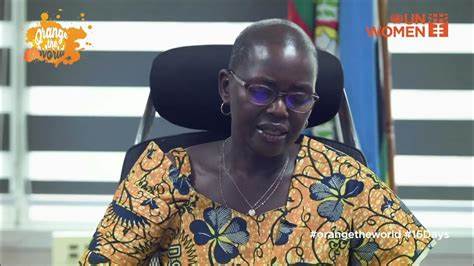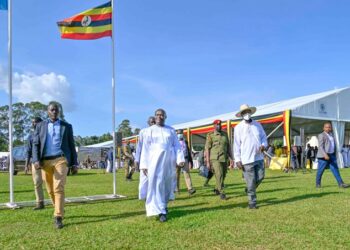By AGGREY BULUBA
Kampala, Uganda – In a bold response to growing parliamentary pressure, Director of Public Prosecutions (DPP) Frances Abodo has reiterated her constitutional limitations, firmly rejecting calls to take over cases involving civilians charged before the General Court Martial.
Addressing the Legal and Parliamentary Affairs Committee during the presentation of the 2025/26 Budget Framework Paper, Abodo clarified her stance, stating that the Constitution bars her from intervening in Court Martial cases.
“I cannot institute or take over cases under the Court Martial,” she said. “The Constitution prevents such actions, and as a custodian of justice, I must respect its limits.” She further emphasized that commenting on the matter would violate the sub judice rule, as the issue is pending before the Supreme Court.
MPs Call for Broader Interpretation
Bugiri Municipality MP Asuman Basalirwa urged Abodo to reconsider, arguing that Article 120 of the Constitution grants the DPP the authority to take over or discontinue criminal proceedings, including those in military courts. “While the DPP cannot initiate cases in the Court Martial, there is room for interpretation to ensure civilians receive fair trials,” Basalirwa said.
The debate arises amid criticism of the government’s use of military courts to try civilians, especially following the controversial arrest of former presidential candidate Dr. Kizza Besigye and his associate Obeid Kamulegeya in late 2024. After their disappearance in Kenya, the two resurfaced in custody and were charged with terrorism and illegal possession of firearms before the Court Martial.
Critics have also accused the Judiciary of delaying a case filed by former MP Michael Kabaziguruka, which challenges the legality of trying civilians in military courts. The Supreme Court’s inaction has fueled concerns about political interference and the suppression of opposition voices.
Abodo Defends DPP Office
Despite the criticism, Abodo maintained her commitment to upholding the law and ensuring accountability within her office. She emphasized that all cases undergo rigorous legal scrutiny before proceeding.
“There is no case in the DPP’s office without multiple layers of review. If further investigations reveal weaknesses, we withdraw the case to prevent injustice,” she said.
Abodo acknowledged challenges, including case backlogs, but assured MPs of reforms to enhance prosecutorial decision-making. “Charging someone is a serious responsibility with far-reaching consequences. New guidelines are in place to ensure fairness and justice,” she added.
MPs Voice Concerns
Erute South MP Jonathan Odur criticized the DPP’s office for contributing to increasing case backlogs and what he called “unjustified charges.” Abodo responded by affirming her office’s dedication to reform, stating, “We are committed to improving efficiency and ensuring decisions are made in the interest of justice.”
The Road Ahead
As calls for reform in Uganda’s legal and judicial systems intensify, Abodo’s unwavering commitment to constitutional principles stands out. Her firm stance underscores the delicate balance between political pressures and adherence to the rule of law.
In her words: “A straight tree cannot be bent without breaking.” Whether this resolve will inspire broader reforms remains to be seen, but it’s clear that the DPP is steadfast in her mission to uphold justice, no matter the challenges.







Discussion about this post